Pipe bombs in Derry City Cemetery 'were to be used on police'
- Published
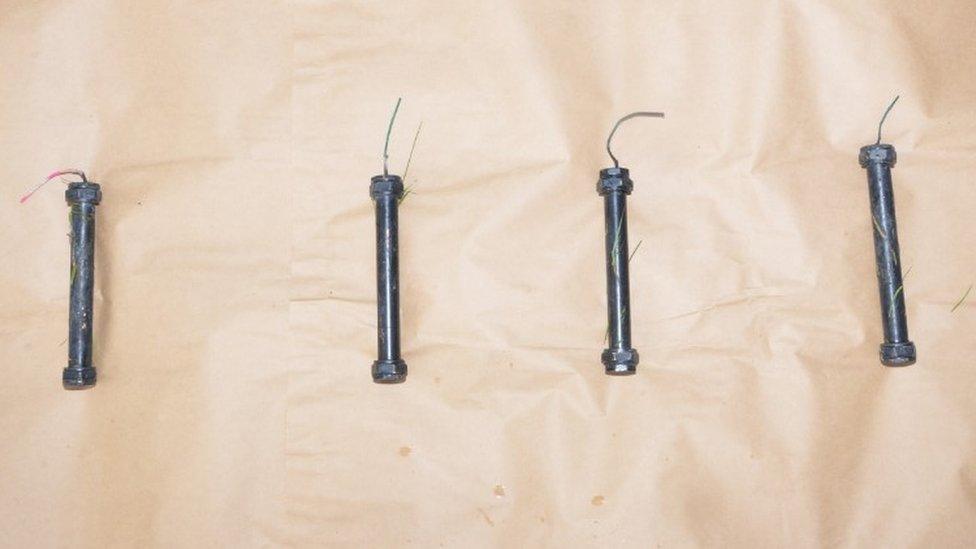
Police are investigating whether the pipe bombs belonged to the New IRA
Four items found in the City Cemetery in Londonderry were "viable" pipe bombs, the police have confirmed.
Detectives said they would have been used to attack officers after an illegal republican parade in the city on Easter Monday.
They said a main line of inquiry was that they were linked to the dissident republican group the New IRA.
Fr Michael Canny, a Catholic priest in Derry, described the planting of the bombs in the cemetery as "evil".
"This is something planned for some time - these people obviously had planned to lure police in," he told BBC Radio Foyle.
Petrol bombs had been thrown at a police Land Rover during the parade to mark the anniversary of the 1916 Easter Rising, a rebellion against British rule in Ireland.
The parade ended at the cemetery after a march through the Creggan estate where the attack, mainly by teenagers and young men, had happened.
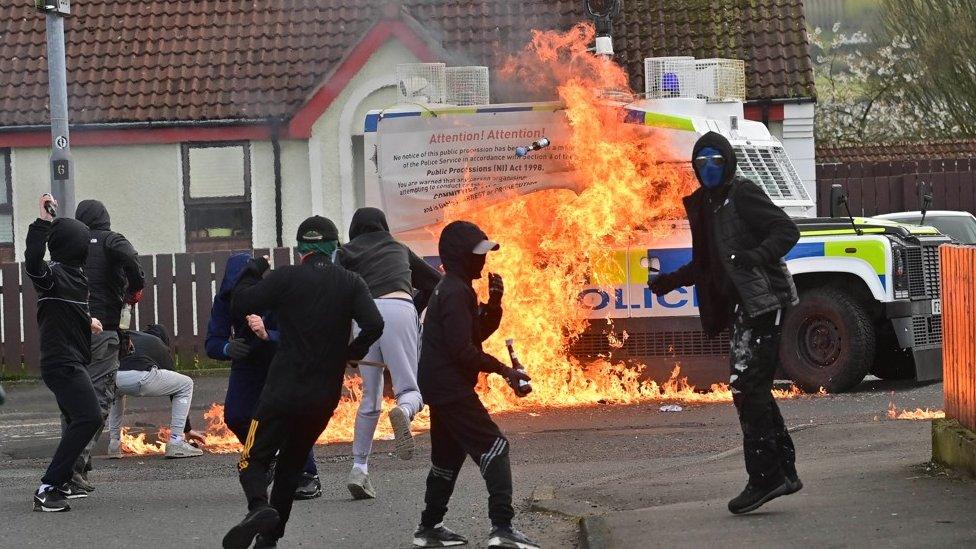
Hooded teenagers were among those involved in the violence
The discovery of the pipe bombs on Tuesday was a "sinister and worrying development", said Assistant Chief Constable Bobby Singleton.
During the searches more petrol bombs, stones and bottles were thrown at police vehicles.
Fr Canny said the annual Easter parade by dissident republicans in Derry had become a "commemoration of disrespect for the dead".
"Their actions on Monday and on previous Easter Mondays have not done one thing, haven't helped one iota, to achieve their cause of a united Ireland," he said.
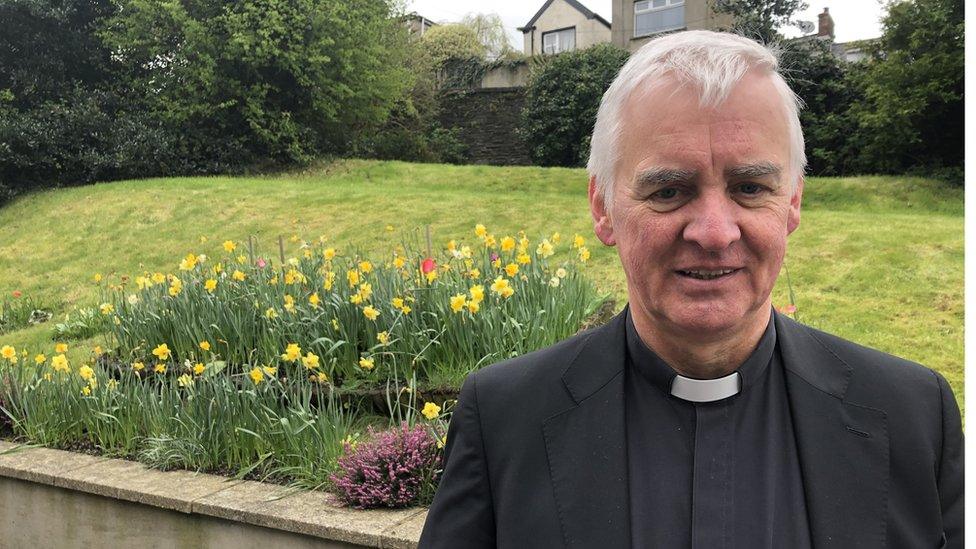
Fr Michael Canny says the involvement of young people in the violence is "very serious"
Fr Canny said the fact that many of those involved in attacking police appeared to be under 16 years old showed that children had been manipulated.
Previous efforts by clergy to engage in dialogue with dissident republicans had been challenging, he said.
But there was still a need to try to "negotiate with them".
They had to be informed that "what they are doing is only inflicting damage on their own community", he said.
Sara Canning, the partner of journalist Lyra McKee who was shot dead while observing rioting in the Creggan in 2019, described the discovery of the pipe bombs as "horrific and disturbing".
"It could have ended up in the destruction and desecration of graves," she said.
"It is difficult to fathom why those responsible might think they had any support for their actions.
"I don't understand why they think the Derry public might support this."
- Published11 April 2023
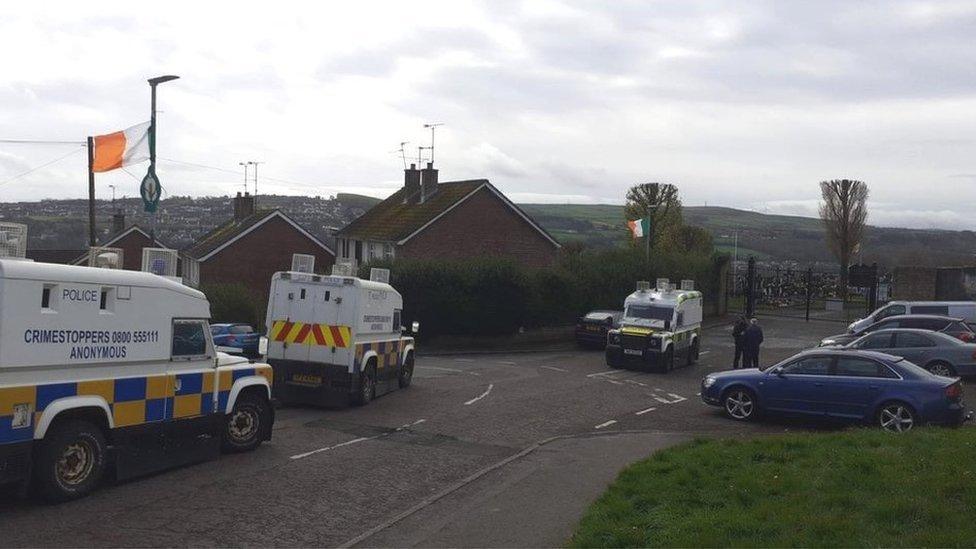
- Published10 April 2023
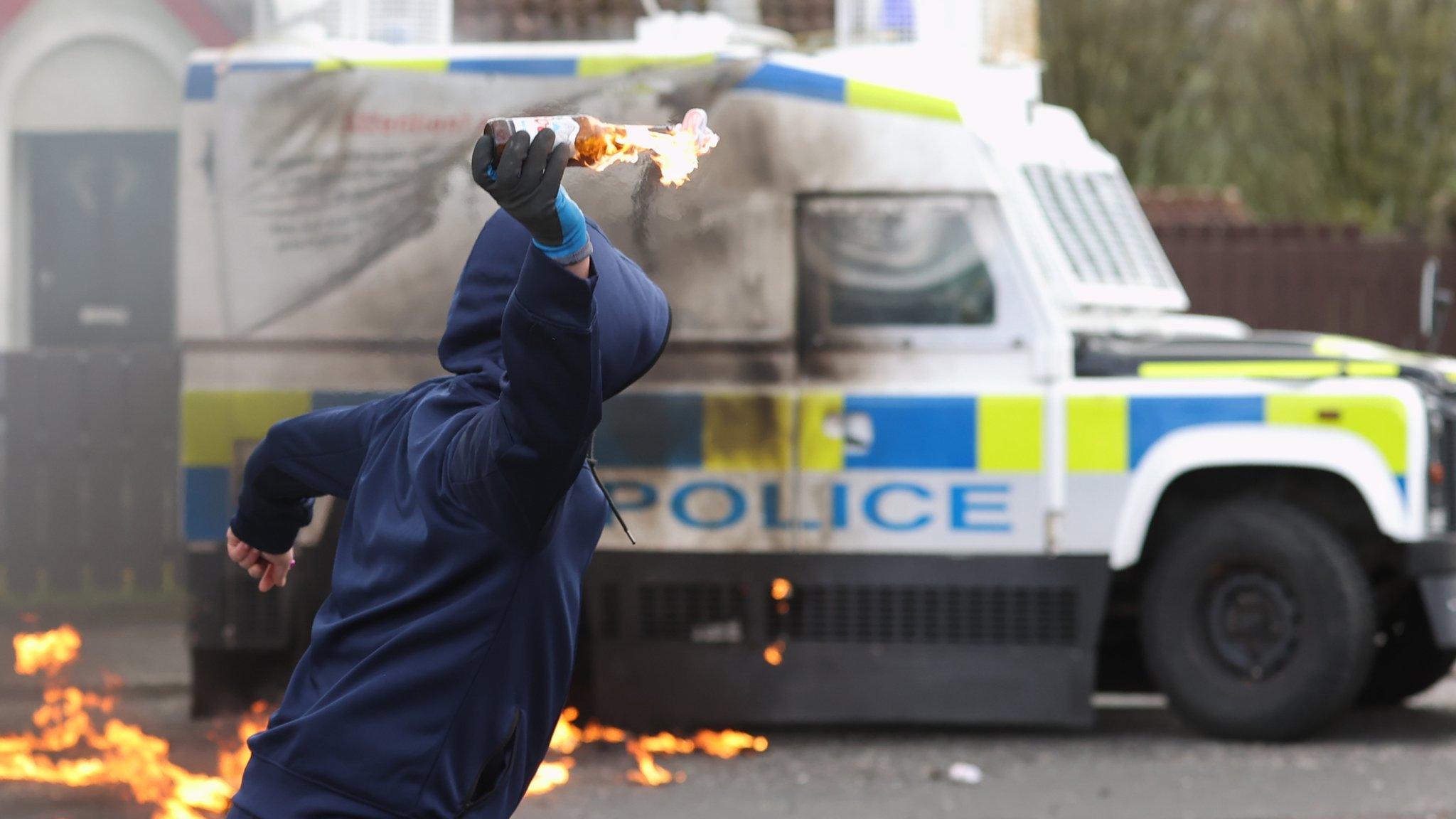
- Published11 April 2023
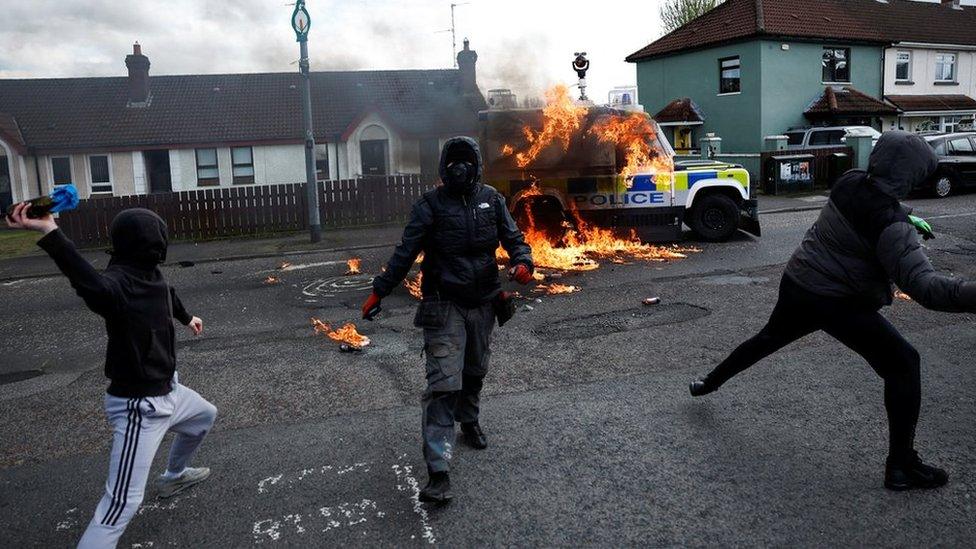
- Published31 August 2010